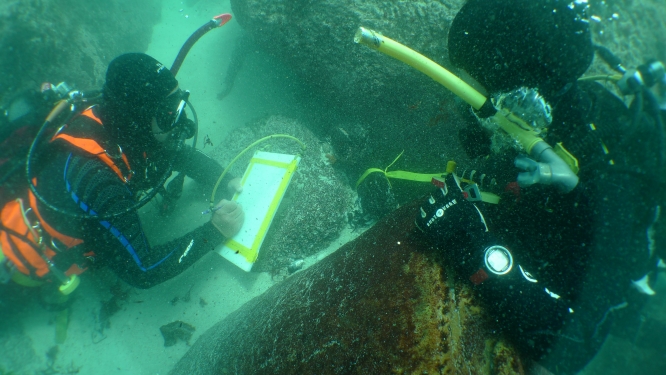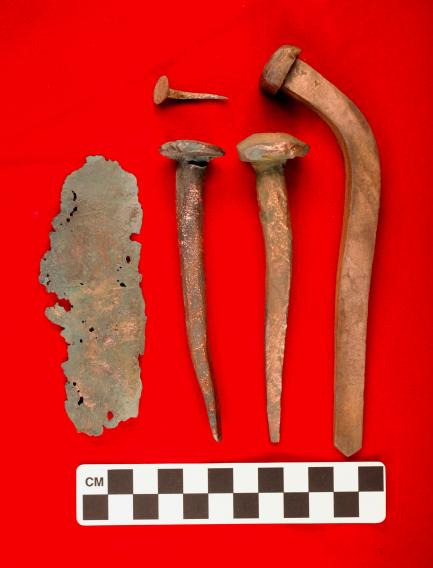Daemen’s Department of Natural Sciences – along with the Office of Diversity and Inclusion – will host a virtual lecture by the Smithsonian Museum’s Slave Wrecks Project, which includes a presentation and dinner at 5:30 p.m. on Wednesday, Feb. 16 in room 101 of the Research and Information Commons.
According to Smithsonian, the Slave Wrecks Project is an international network of researchers and institutions that uses maritime archaeology, historical research and the study of sunken slave ships to take a distinct approach to the study of the transatlantic slave trade.
“This project utilizes science as well as history and sociology to investigate the slave trade. We felt this interdisciplinary presentation highlights the role science has in liberal arts education,” said Diane Ramos, associate professor and chair of Daemen’s Natural Sciences Department.
According to the Smithsonian’s website, “[the project] searches for slave ships one voyage at a time, and looks at sites, histories, and legacies connected by those voyages. This mission to humanize the history of the global slave trade increases all people’s capacity to understand a trade that shaped the world in which we live.”
“Previously submerged archeological remains, and long-neglected histories are recovered, restored, remembered, protected and shared.”
 Daemen students, faculty and staff are welcome to view the presentation, which was made possible through a virtual broadcasting grant awarded to Daemen by the The Society for Analytical Chemists of Pittsburgh (SACP) and the Spectroscopy Society of Pittsburgh (SSP) – non-profit organizations dedicated to furthering science education.
Daemen students, faculty and staff are welcome to view the presentation, which was made possible through a virtual broadcasting grant awarded to Daemen by the The Society for Analytical Chemists of Pittsburgh (SACP) and the Spectroscopy Society of Pittsburgh (SSP) – non-profit organizations dedicated to furthering science education.
“To provide this culturally relevant opportunity that is also science-based is something we are excited to share,” added Ramos.
Bee Taylor, coordinator for Diversity and Inclusion at Daemen, described the project as, “the epitome of Black History Month in the modern day because it shows how this history is impacting Black people and the world around us. It also represents the generational trauma that comes along with being Black in the U.S. as the physical existence of their peoples’ trauma is still being unearthed to this day.”

